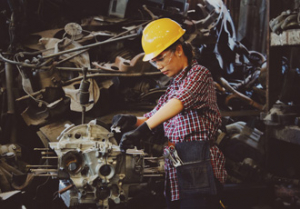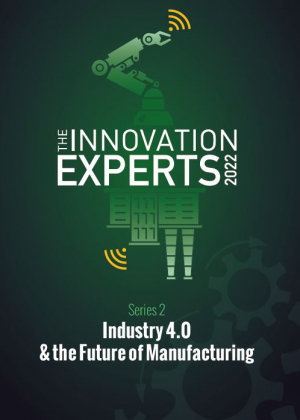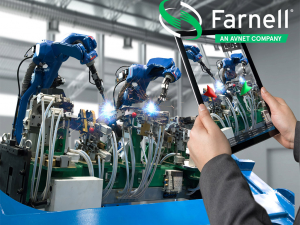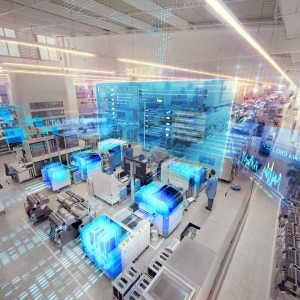The future of HR in manufacturing

Manufacturing plays a significant role in the global economy. For more than two centuries, the industry has developed rapidly, adopting more and more technology. This acceleration has significant consequences for workers, creating a skills gap between the skills they already possess, and the ones needed to keep up with the technological demand. Here Neil Bellinger, Head of EMEA at EU Automation, discusses the job titles and skills necessary for the future of manufacturing.
Automation, IoT, artificial intelligence and advanced robotics are changing the face of manufacturing and restructuring the workplace. While some predicted that these technologies would eliminate jobs, the reality shows that more jobs are being created. A 2019 study by Boston Consulting Group found that job postings containing 'IoT', 'cloud', and 'machine learning' are increasing 20% year over year.
Another study by Deloitte and The Manufacturing Institute revealed that technological development widens the gap between the jobs that need to be filled and the skills people need to fill them. They found that between 2018 and 2028, there will be approximatively 2.4 million positions unfilled, with a potential economic impact of 2.5 trillion.
In these conditions, what are the must-have skills for the manufacturers of the future and how will the workplace look like? Here are three examples of possible job titles in the industry.
Digital twin engineer
Digital twins have many advantages, including extending the capabilities of legacy equipment and mitigating the risk of obsolesce. They are powerful digital shadows of all physical assets throughout their whole lifespan, including the data and controls of these assets. From companies like Amazon and Rolls Royce, the use of digital twin technologies is growing exponentially, creating the need for a position to manage them.
Digital twin engineers act as a link between the product twin and the performance twin, enhancing their collaboration and monitoring their performance. They leverage engineering tools and product structures, such as parts and sub-components, and integrate these with the necessary digital elements, including software, data and chips. They also help manufacturers gain an understanding of their products by creating virtual models to test in real-world operating environments.
The skills needed to fulfil such a job are a deep understanding of analytics, software development, cross-functional team leadership, but also knowledge of sensors, image processing, simulations and algorithms. Digital twin engineers must be proficient in creating virtual replicas of major industrial products to help companies predict and respond to their customers’ needs.
Robot team coordinator
It is not hard to picture robots and humans working together - cobots are already revolutionising the factory floor. This collaboration between machines and humans is gaining popularity, leading to the creation of teams of mixed interactions.
Just as a normal team leader, a robot team coordinator would supervise the robot performance and provide feedback to programmers to optimise robot value, while enabling a collaborative human-robot working environment. They play a key role in discovering and managing humans and robots’ strengths for increased productivity and growth.
Some skills needed for this position are behaviour analysis, robot management, customer service and technical know-how. They would also need some of the skills of process engineers and change management experts to integrate robotics on the production line while considering the human skills that add value to processes.
Smart factory manager
In the smart factory of the future, managers will have even more responsibilities than in a traditional setting. This is because they will need to integrate advanced manufacturing, secure connectivity, and actionable data analytics together to drive equipment growth. They use AI and machine algorithms to manage inventories and product management strategies.
With increased responsibilities come the necessity for greater skill sets. Smart factory managers will need to be experts in applied technology, automation and connectedness, as well as deep learning and new industrial technologies. Other skills include operational excellence, project, client and change management.
Having a deep understanding of the needs of the future workplace allows manufacturers to address efficiently the skills gap that is affecting the industry and to respond to it by investing in their workers. Most importantly, they need to create the conditions for these new job titles to develop through increased digitalisation.
At EU Automation, we provide manufacturers with all the necessary parts to boost the technological capabilities that will drive the smart factories of the future.
Similar articles
More from EU Automation
- Is it time to scale up? 30th June 2021
- Innovative automation projects for manufacturers 1st June 2021
- The future of HR in manufacturing 20th May 2021
- The Help to Grow scheme - what does it mean for manufacturing? 30th March 2021












Write a comment
No comments